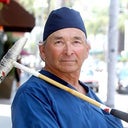Upper Lip and Nose Tip Immovable After Rhinoplasty
I underwent closed Rhinoplasty a little over a month ago. Some areas are still numb but it's not the main problem for me. The upper lip feels like it's tucked into inside of the nose, if that makes sense. It's like there are stitches inside or something that holds my depressor muscle, and makes it unable to pull my upper lip down. Even when I try to pull the upper lip down with my hands, it just doesn't let it. It's not just a sensation, but it's an actual feeling that there is something holding my lip inside of the base of columelar area. I am aware that my surgeon corrected the upper lip angle by cutting the depressor muscle and trimming a little bit of the bone. Current appearance is just normal, and the upper lip isn't numb anymore. But it's still holding the upper lip, and makes the tip of the nose unmovable too. What can this be, and is it normal? If so, why is it happening? How long will it take before I'll be able to freely pull the upper lip down? Thanks!






